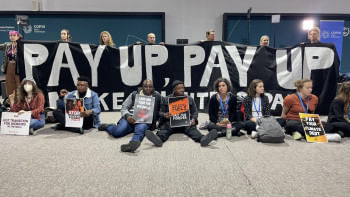Strict abortion law

“These restrictions harm women's health and place an unconstitutional obstacle in the path of a woman's reproductive freedom.” said Barack Obama after Supreme Court Rejects Texas Abortion Law addressing as 'Undue Burden'.
While the feminist and abortion activists had been protesting against the existing laws on abortion; on 9th June, the UN Human Rights Committee constituting experts from 17 nations called on Ireland to “amend” its abortion laws and somewhat similarly on 27th June the U.S. Supreme Court ruled 5-to-3 to strike down a Texas law that imposed one of the nation's strictest obstacle to abortion.
Earlier it was the case of Amanda Mellet, an Irish woman who came to know that her fetus had congenital defects and the child is more likely to die either in the womb or after its birth. She was denied abortion in her own country. But Amanda decided to abort the baby to get rid of the mental trauma she was going through and therefore had to fly all the way to Britain and bear the air fare on her own ,moreover she had to return right after twelve hours in that condition as she couldn't meet the expenses. The Committee consisting of experts from around 17 nations acknowledged the hassle she had to suffer from and asked the Catholic country to amend its law on abortion, based on "Protection of Life During Pregnancy Act 2013".
In Bangladesh, the punishment of crime is regulated by the Penal Code 1860 while under sections 312-316, punishment of causing miscarriage, causing miscarriage without women's consent and death caused by the act done with intention to cause miscarriage -are conspicuous. Abortion is only allowed when the women's life is in danger, which proves the ground to be circumscribed and confined. In our country abortion was legalised for a certain period in 1972, for the rape victims of the liberation war. However attempts, taken by Bangladesh National Population Policy to make abortion legal for the first time were failed in 1976. We haven't faced any active or consistent protests against the law so far but research says, in Bangladesh abortion is more prevalent among unmarried adolescent girls than married women. The comparison is about thirty five times more among the girls who are less than eighteen years of age and these are in most of the cases unlawful abortion.
Ours is a country where law is seldom seen to be executed, and still we are struggling with law enforcement. But such actions of miscarriage are being adapted unlawfully to deceit the law, which raises a question to the health and hygiene of particularly the young girls who seek to get rid of their pregnancy.
More often than not such incidents seem to be correlated with rape incidents or pre-mature marriage which again brings the execution of law to question. So, laws in our country need to recognize the circumstances of the cases before reaching any judgment and need to be reformed in a way to adapt to the situation of people for whom the laws are made.


 For all latest news, follow The Daily Star's Google News channel.
For all latest news, follow The Daily Star's Google News channel. 



Comments